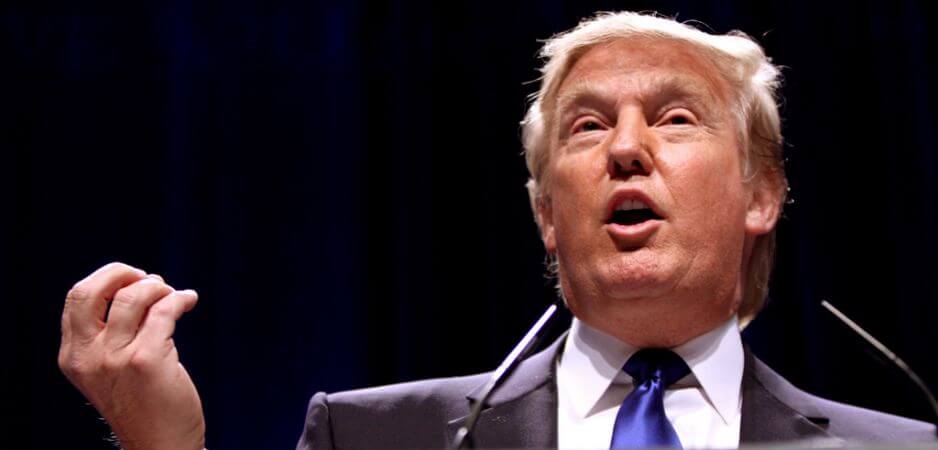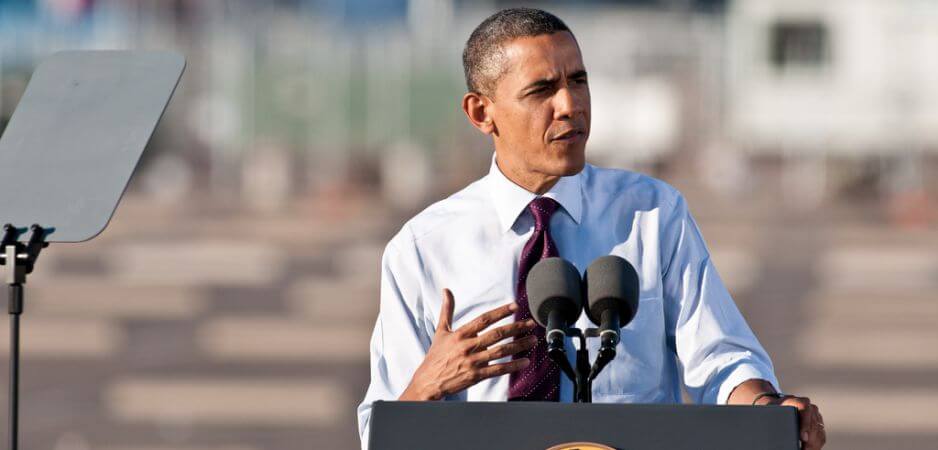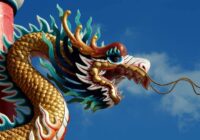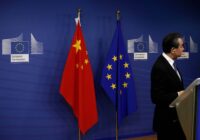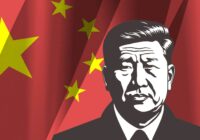As the global jet-setters gather in salubrious Davos, Xi Jinping and Donald Trump offer two radically different visions for the global economy.
Climate change is in the air. Data from NASA and the UK Met Office reveals that 2016 was the warmest year since 1880, the year from which records are available. It beat the record set in 2015 by 0.07 degrees Celsius. In the cool climes of Davos where the World Economic Forum (WEF) gathers, this warming did not concern many. They were feeling the heat of a changing zeitgeist. None other than a towering hedge fund titan named Ray Dalio who manages $150 billion confessed that populism scares him. After all, Davos is a place where people clink their champagne glasses, schmooze shamelessly and spout pious homilies “to improve the state of the world.”
CHINA CHAMPIONS GLOBALIZATION
With Donald Trump as the 45th president of the United States, “the times they are a-changin’” and so is Davos. It played host to none other than Chinese President Xi Jinping who vigorously defended globalization and free trade. Warning against trade war, Xi blamed international financial crises on excessive pursuit of profits. Klaus Schwab, the founder of WEF, proclaimed the shift from a unipolar to a multipolar system as he pandered to the first Chinese leader to show up at this rather hyped up annual jamboree of politicians, financiers, corporate bosses, do-gooders and hacks.
Xi has no choice but to push for free trade because China is “the workshop of the world.” Similarly, he has to support globalization because the Middle Kingdom is investing in places like Africa, taming the oceans by developing the “Maritime Silk Road” and holding over $3 trillion in foreign exchange reserves, despite its slowing economy. By proposing tariffs, promoting domestic manufacturing and promising to stop the “rape” of the US, Trump is threatening fundamental Chinese interests. Hence it is little surprise that Xi is offering an alternative urbane vision to Trump.
Ironically, the communist leader is defending the current economic system at “the spiritual home of global capitalism” while the real estate magnate-turned-reality TV star is tilting at the Davos jet-set. Even as the Uncle Donald-led Uncle Sam is turning isolationist and protectionist, Jack Ma, the founder of Alibaba, tag teamed with Xi to give the superpower unsolicited advice. After wasting $14 trillion on wars over the last 30 years, Ma suggests that the US spend less money on fighting wars and more on domestic infrastructure. He also recommends that American leaders “distribute money and things in a proper way.” As per Ma, too much money flows into Wall Street and Silicon Valley while schools and people are missing out.
GLOBALIZATION AND ITS PERILS
Xi and Ma have a point but neither suggested remedies to the glaring inequalities, environmental damage and increasing fragility that free trade and globalization have unleashed. Free trade allows Nike to move factories from one place to another, chasing the cheapest wages to maximize profits. It allows Apple to ship manufacturing to China and part with a pittance in the process. Furthermore, the current economic order allows Apple to weave a web of companies around the world and game the tax rules. In the April 24, 2016, edition of The World This Week, this author agreed with Steve Wozniak, Apple’s co-founder, who argued that Apple and other companies should pay more tax.
At the moment, big companies have become a law unto themselves. They are top down structures with tremendous power. In September 2016, Facebook had nearly 1.2 billion daily active users. The global population was nearly 7.4 billion at that time, making nearly one in six people a daily Facebook user. This makes Facebook inordinately powerful. It feeds people content that exactly matches their specific interests, creating dangerous echo chambers that weed out different points of view.
Furthermore, Facebook now has community standards in fine print that everyone must adhere to. It censored the harrowing 1972 photograph of a nude girl burnt by napalm during the Vietnam War. This was a historic photo that outraged the American public and helped put an end the war. Censoring this photo was a demonstration of a control of democratic discourse and public record that is downright dangerous. Even as Facebook censors offensive photos, fake news is flourishing on its platform and some believe it might even have swung the US election in Trump’s favor.
People around the world are coming to believe that they have little control over their lives. They feel that institutions, systems and rules are rigged against them. In the July 3, 2016, edition of The World This Week, this author argued that “this is fast becoming an age of fear, anger, hate and terror” because “technocratic elites have failed the people and taxpayer-funded bank bailouts have robbed the poor for the rich.” This resentment of elites fueled both Brexit and Trump’s victory. This is the world that the Harvard-trained Dalio does not understand.
Dalio is a brilliant billionaire who has made a ton of cash. In 2007, he “predicted that the housing-and-lending boom would end badly.” This only child of Italian Americans is a poster child for the “American Dream” and worked his way to the top after starting life as a caddy at the Links Golf Club, which had many Wall Street investors as its members. Like Steve Jobs, Dalio has been a bit of a wild card. An extensive story by The New Yorker records how he slugged his boss after an evening of carousing and “paid an exotic dancer to drop her cloak in front of the crowd.” So far, Dalio sounds like Jordan Belfort, “the wolf of Wall Street.”
 It turns out that Dalio is a touch more respectable. He handles institutional investors such as pension funds. He has a reputation for giving his clients consistently high returns by diversifying risks. Like George Soros, Dalio is more than an investor. He practices transcendental meditation and aspires to “the role of a worldly philosopher.” He reportedly fishes in Canada and goes to Africa to hunt big game with a mere bow and arrow. In some ways, he is a modern-day conquistador with conviction, chutzpah and charisma. In the words of his lawyer, he is a “smart bastard.”
It turns out that Dalio is a touch more respectable. He handles institutional investors such as pension funds. He has a reputation for giving his clients consistently high returns by diversifying risks. Like George Soros, Dalio is more than an investor. He practices transcendental meditation and aspires to “the role of a worldly philosopher.” He reportedly fishes in Canada and goes to Africa to hunt big game with a mere bow and arrow. In some ways, he is a modern-day conquistador with conviction, chutzpah and charisma. In the words of his lawyer, he is a “smart bastard.”
To his credit, Dalio is also honest about the role of finance in society. He sees earning above market returns, termed alpha in industry jargon, a zero sum game. He is clear-eyed in saying that when he wins, someone else loses. This is exceedingly important for capital allocation, which in turn is the essence of capitalism.
In his book Principles, Dalio sees capitalism as a Darwinian process and finds nature beautiful, practical, perfect and brilliant. He believes in immutable laws of nature and a society’s success depends on whether it operates in harmony or in conflict with these laws. Hyenas may devour a young wildebeest and seem cruel or evil, but they have a crucial role to play in a complex and efficient system. In Dalio’s view, “the desire to evolve is the desire to evolve, i.e., to get better, is probably humanity’s most pervasive driving force.”
Dalio goes on to say that successful people help evolution through “their pursuit of self-interest.” He also finds self-interest and society’s interests to be generally symbiotic. So, society benefits when people pursue their self-interest. Money, in his memorable words, is “a rough measure of how much they gave society what it wanted.”
In Dalio’s crude Darwinian worldview, there is no place for Adam Smith’s moral sentiments, leave aside the Buddha’s renunciation and wandering off into the forest. Money for him offers a singularity of value that makes his world clean, mathematical, machine like, predictable and understandable.
What Dalio forgets is that human beings are not exactly machines, that Darwinism has its limits and that there is more to life than markets. He also fails to understand that price can be factored in money, but value is often not easily quantifiable or measurable in terms of gold, silver or any other currency. The land of Dalio’s forefathers produced Giordano Bruno, Galileo Galilei and Antonio Gramsci. These fine Italians neither make money nor did their lives end happily. One was burnt alive by the Catholic Church for contending that the universe was infinite, the second died under house arrest, and the third died of ill health after years of imprisonment by Benito Mussolini. For all his money, Dalio will never measure up to the ankles of these gentlemen.
Apart from the inadequacy of valuing worth in money, Dalio forgets three important points.
First, finance is not exactly a meritocracy. Dalio tends to hire mainly from Harvard, Princeton and Dartmouth. People from American Ivy Leagues with their fixation on tests, grades and cookie cutter applications form a self-selecting group that tends to be entitled, conformist and incestuous.
Second, Dalio’s boys and, it is important to remember that he runs an old boys’ club, is particularly susceptible to herd behavior. This is common to the entire hedge fund world and has contributed to speculative bubbles in technology stocks, real estate, derivatives, oil and other commodities. The value that hyenas in hedge funds add through better capital allocation has to be balanced with the systemic risk they pose to the entire economy.
Third, Dalio and his ilk profit from a system rigged in their favor. They often prey on the weak. They play Russian roulette with other people’s money. They get 2% of the amount they manage as annual fees and 20% of the profits. They do not lose any skin off their nose when they run losses. They classify their income as capital gains. This is the infamous carried interest loophole, which allows hedge fund managers to pay lower taxes than teachers and policemen. Many hedge fund managers have confided to this author in private that this is a total sham. They think tax rates are unlikely to change because political candidates need huge amounts of cash to run for office and cannot displease Wall Street. Unlike Warren Buffet, most hedge fund managers refuse to admit that they are paying lower tax rates than their secretaries.
POPULISM IS BREAD AND BUTTER FOR ANOTHER BILLIONAIRE
Like Dalio, President Trump has a Darwinian worldview. He sees himself as a natural born winner who has made money, gained fame and bedded beautiful women. Unlike Dalio, he has not dabbled in the cool and calculating world of finance, but in the rough and tumble of real estate and reality television. This is a man who got into a ring and challenged Vince McMahon to a fight, promising to kick his ass. Trump then went on to throw McMahon on the ground, punch him in the face and then gleefully shave McMahon’s head in the ring. While Dalio believes in principles and nature as a machine, Trump senses animal spirits and functions intuitively. Therefore, populism is alien to Dalio but second nature to Trump.
As this author explained in the October 9, 2016, edition of The World This Week, the cult of success and the coarsening of culture are wreaking havoc in the US. There is little questioning, even lesser critical thinking, almost no debate or discussion, and an inability to agree on basic facts.
American elites such as the Bushes and the Clintons lost touch with the common people and became too beholden to special interests that were organized and wealthy. The son-in-law of the Clintons allegedly used his Clinton Foundation connections to wrangle money for his hedge fund. Disgusted Americans have turned to a cunning 70-year-old rabble rouser who can instinctively smell blood and pounce on weakness. Trump is a classic bully who has made it to the top of the greasy pole.
At his inauguration, Trump declared that he will rebuild the infrastructure that “has fallen into disrepair and decay.” He declared that going forward it will be “only America first.” He will make every decision on trade, taxes, immigration and foreign affairs for the benefit of “American workers and American families.” He promised to bring back the wealth of the middle class that has been ripped from its “homes and then redistributed all across the world.” To fulfill his promise, he proposed “two simple rules: buy American and hire American.”
If Trump means what he said, then he has thrown a gauntlet to President Xi just as he once did to McMahon. Shaving Xi’s head might prove to be a slightly more difficult proposition.
Even as Trump promised a return of Halcyon days, a Women’s March in Washington, DC opposing Trump drew hundreds of thousands. The women were marching to protest xenophobia, racism, misogyny and sexism that they see personified in Trump. The collective identity engendered by this march is going to light a touch-paper of opposition to Trump just as the Tea Party emerged to oppose Barack Obama.
Chasms in the US are deepening and widening as a splendid recent documentary titled, Divided States of America captures aptly. Race, religion, region, gender and class now weaken the common bonds that once united Americans. To add fuel to the fire in the US, reason has come to defer to emotion and understanding has come to mean mere feeling. That makes debate and discussion almost impossible. This does not bode well for Trump’s presidency or for the US.
*[You can receive “The World This Week” directly in your inbox by subscribing to our mailing list. Simply visit Fair Observer and enter your email address in the space provided. Meanwhile, please find below five of our finest articles for the week.]
The Fate of Neoliberalism Under Trump
The US has not invested properly in the education and reeducation that would support the development of advanced intellectual resources and capital.
With the rise of alt-right politics in Europe and the United States, along with the election of Donald Trump, some argue that the era of neoliberalism has come to an end. Those who advocate this idea claim that neoliberalism as a political and economic doctrine and belief has paved the way for much of the generated and existing imbalances and displacements in the world economy and in the US. Does neoliberalism come to an end?
Similar to classical liberalism and liberalism, neoliberalism was developed as an approach to politics and economics in the late 19th century. Its origin dates back to the French economist Charles Gide. In the 1960s, Milton Friedman reacted to Keynesianism, which was the post-World War II dominant economic paradigm encouraging a more active role for government in the economy, by a more… Read more
How to Salvage US Interests in Syria
Short of a full military victory by one side or the other, there is no prospect of Syria being stitched back together soon.
When it started in 2011, the Syrian protest movement against the government of Bashar al-Assad in Syria was entirely domestic and mostly peaceful. I was there and observed up close—so close, in fact, that the Syrian government was furious with me. Those marching wanted a government that accepted accountability and respect for basic human rights. Some—not all—wanted democracy, but few understood what the word meant.
Now, nearly six years after the revolution started, the Syrian government and the Syrian opposition demonize each other as terrorists, rapists and child-killers, exploiting sectarian fears and grievances constantly. Politically, it no longer matters that the Syrian government has killed far more than the Syrian opposition has, or even the Islamic State (IS). Damaged by internal divisions, short-sighted support for jihadists that has returned to haunt them… Read more
Obama Leaves No Legacy in the Middle East
President Obama has joined a long list of US presidents who failed in their Middle East policy.
The Middle East may be where grandiose policies by well-intentioned but naive US presidents run aground. Despite some success, American presidents since Jimmy Carter have been known more for their failures in the troubled region—in Carter’s case, his handling of Iran’s Islamic Revolution and subsequent hostage crisis—than their successes (Carter’s signature Camp David Accord between Egypt and Israel).
With the possible exception of George H.W. Bush, whose one term in office perhaps rescued him from a failure that might have tainted his leadership of the historic coalition that ousted Saddam Hussein from Kuwait in 1991, US presidents have met with disappointment, defeat and sometimes outright humiliation. Barack Obama now joins that distinguished line of presidents who failed to bring peace to the Middle East. When he took office eight years ago, President Obama set lofty goals for US foreign… Read more
Populism’s Global Media Strategy
The relationship between the mainstream media and populism is more symbiotic than you think.
Brexit in the United Kingdom and Donald Trump’s victory in the United States have marked the beginning of what some analysts call the rise of the global populist wave. Although there is no consensus among scholars on the definition of populism, a review of literature offers an understanding of what it represents and signifies.
Some political scientists define populism as a feature of representative politics, while theorists understand it as an appeal to “the people” against established power structures and dominant values. Researchers also contend that populism does not have an ideology or an inherent political color, although much of the recent scholarly attention has focused on right-wing populism. Recently, populism’s interaction with the media has been a hot topic of discussion, particularly in the context of Trump’s blistering attack on the news media. His reference to reporters as the “lowest form of life… Read more
Time is Running Out for The Gambia’s President
Will there be a peaceful transition of power in The Gambia?
It’s clear that Adama Barrow, the president-elect of The Gambia, has the support of most African nations and the wider international community. His inauguration—scheduled for January 19—marks a watershed moment for the Gambian people and the nation’s democratic future, one that some pro-reform analysts see as a harbinger of hope for other African nations too. There’s just one problem: The Gambia’s outgoing president, Yahya Jammeh, won’t leave.
Barrow attended the 2017 Africa-France Summit in Mali on January 14, where he had the chance to provide an update on the Gambian impasse to more than 30 African heads of state, primarily from Francophone nations. He left Banjul with the unsuccessful Economic Community of West African States (ECOWAS) mediation team, led by Nigerian President Muhammadu Buhari, who had hoped to persuade Jammeh to honor the vote for the second time. “We have made a strong gesture. First… Read more
The views expressed in this article are the author’s own and do not necessarily reflect Fair Observer’s editorial policy.
Photo Credit: Gage Skidmore
Support Fair Observer
We rely on your support for our independence, diversity and quality.
For more than 10 years, Fair Observer has been free, fair and independent. No billionaire owns us, no advertisers control us. We are a reader-supported nonprofit. Unlike many other publications, we keep our content free for readers regardless of where they live or whether they can afford to pay. We have no paywalls and no ads.
In the post-truth era of fake news, echo chambers and filter bubbles, we publish a plurality of perspectives from around the world. Anyone can publish with us, but everyone goes through a rigorous editorial process. So, you get fact-checked, well-reasoned content instead of noise.
We publish 2,500+ voices from 90+ countries. We also conduct education and training programs
on subjects ranging from digital media and journalism to writing and critical thinking. This
doesn’t come cheap. Servers, editors, trainers and web developers cost
money.
Please consider supporting us on a regular basis as a recurring donor or a
sustaining member.
Will you support FO’s journalism?
We rely on your support for our independence, diversity and quality.


